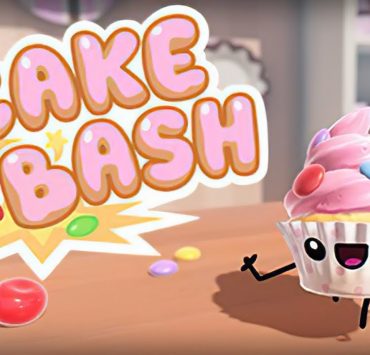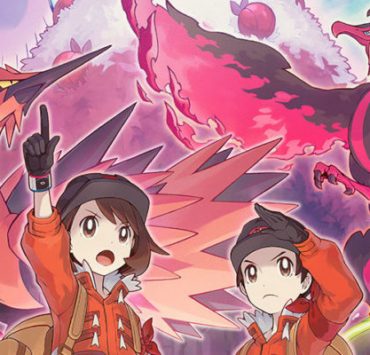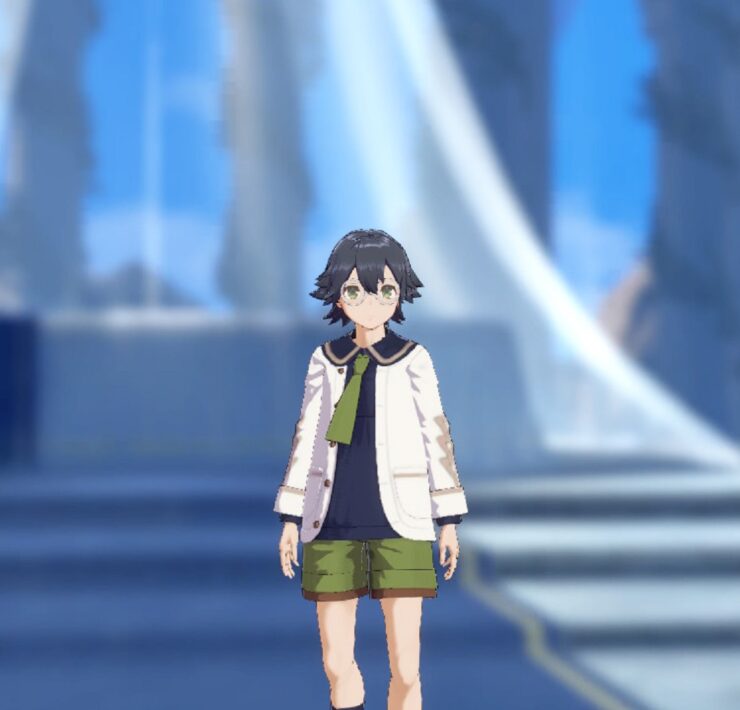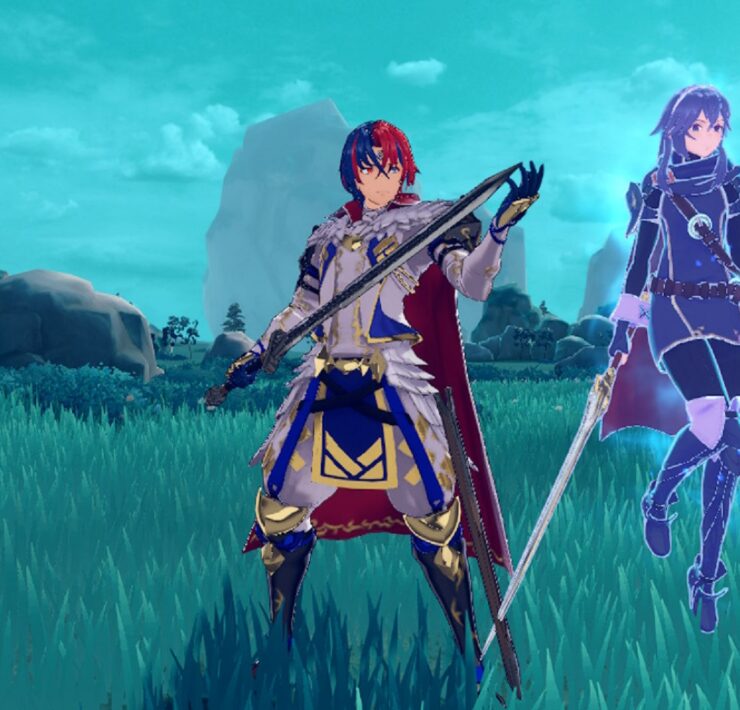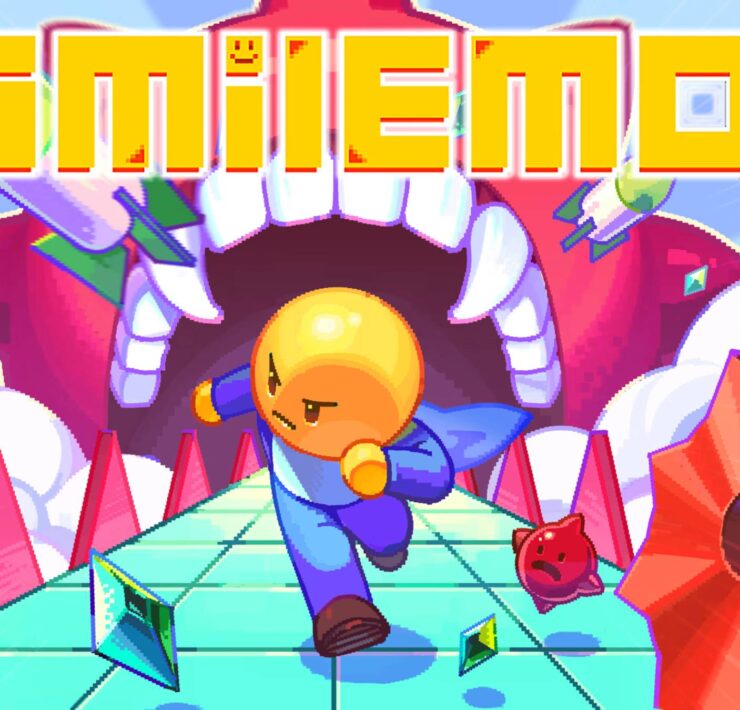Ys Origin Switch Review – A Beyond Worthy JRPG Port
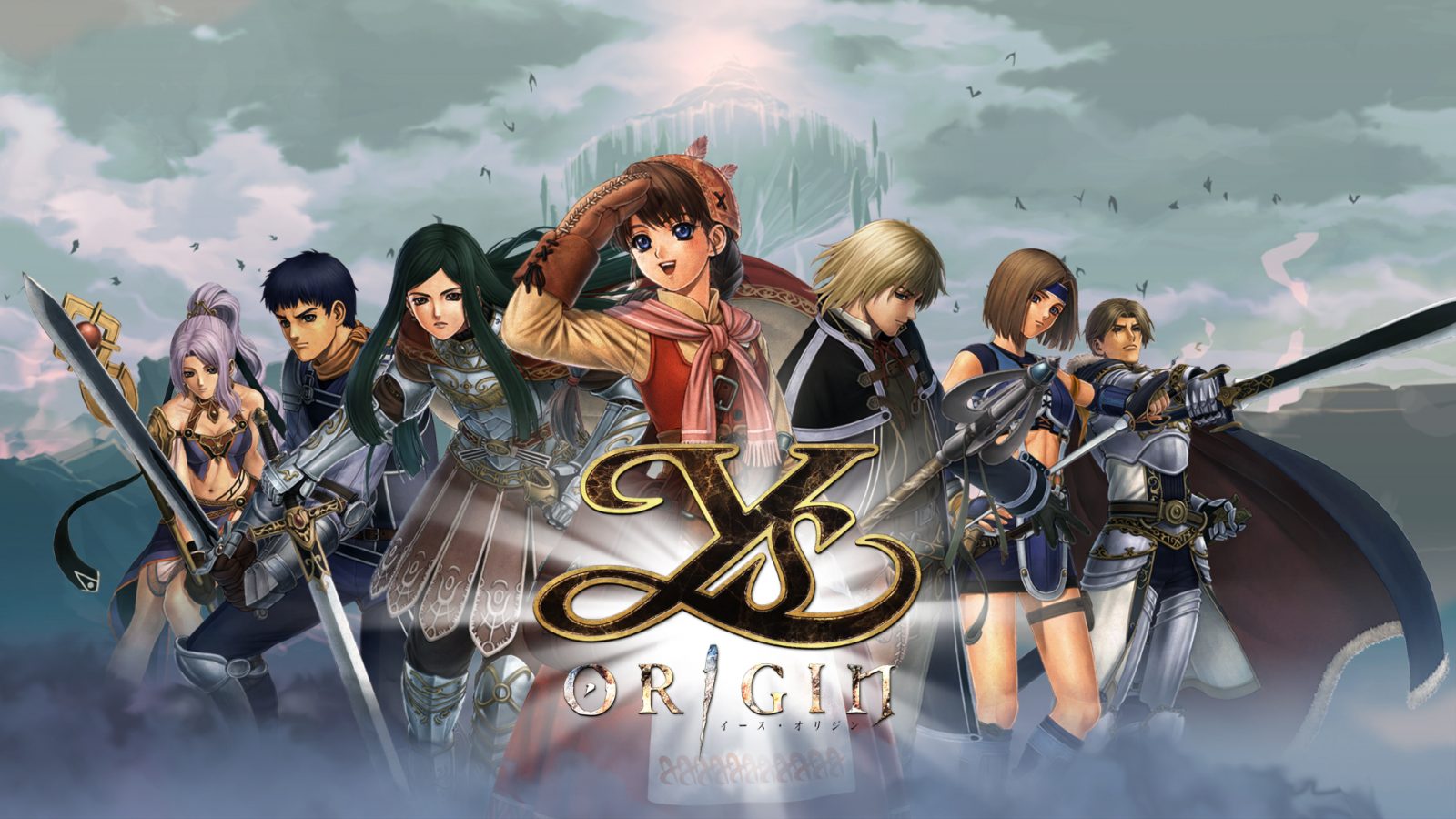
JRPGs are a unique breed of video game. Compared to most genres, they are fanatically beloved by a small but impassioned fanbase, and they also have roots that run deep, with the more adoring JRPG fans digging deep to find the most obscure series’ and latching on tight to them. Ys, published by Nihon Falcom, is one such series. And Ys fans will likely rejoice with Ys Origin getting its own Switch port. And, spoiler alert: it’s really good.
Ys is a long-running video game series that began all the way back in 1987 with its original game Ys I: Ancient Ys Vanished releasing on the NES, PC, and Sega Master System. A new game in the Ys series drops every few years to a small fanfare from a pocket of dedicated fans. Ys Origin was originally released back in 2006 for PC before getting a PS4 port in 2017 and, now, a Switch port.
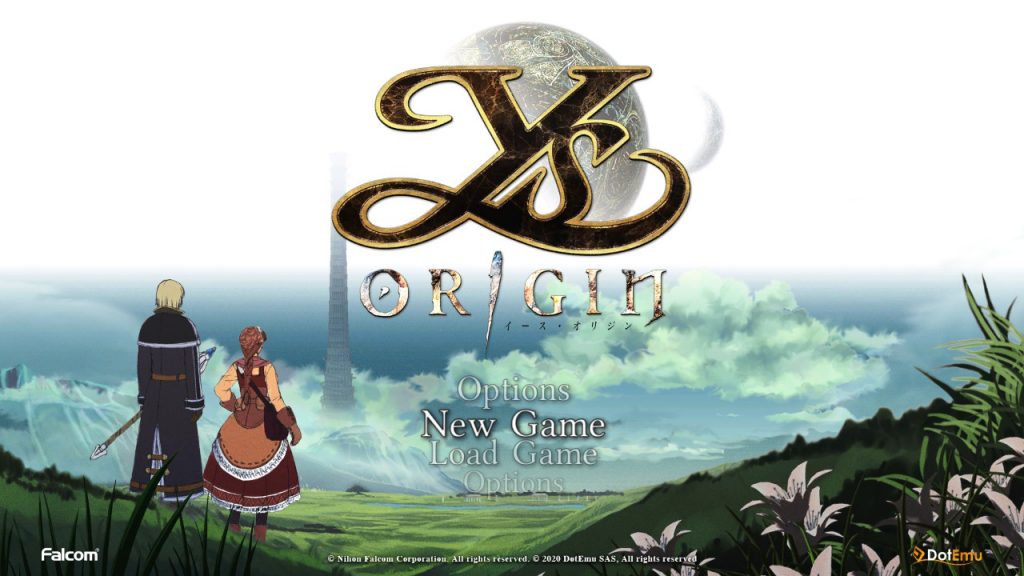
I always considered myself, growing up, a pretty fanatical JRPG fan, enjoying series’ like Final Fantasy, Wild Arms, Dark Cloud, and Star Ocean. But those games were just the tip of the iceberg. The true JRPG fans were enjoying the games of developer/publisher Nihon Falcom, owner of the Ys and The Legend of Heroes series’. I have recently fallen in love with the Trails of Cold Steel series and, now, thanks to the Switch port of Ys Origin, I have a new and wonderful series to dive into and explore.
Story
As its name suggests, Ys Origin serves as a prequel to the rest of the Ys series, though it was developed and published around 20 years after the first game. Speaking as someone new to the series, Ys Origin is entirely newbie-friendly. As I understand, the game does have many nods and winks to earlier games and I’m sure that’s fun for longtime fans. I’m not one of them, and I still found this game intensely engrossing and addictive.
The titular land of Ys was once a magical paradise ruled over by twin goddesses Reah and Feenah. One unfortunate day, an army of demons descend on the land, and the goddesses are forced to use the Black Pearl, source of all magic, to raise their land into the sky and out of the demons’ reach. The demons followed in hot pursuit, however, erecting an enormous tower into the sky in order to give chase.
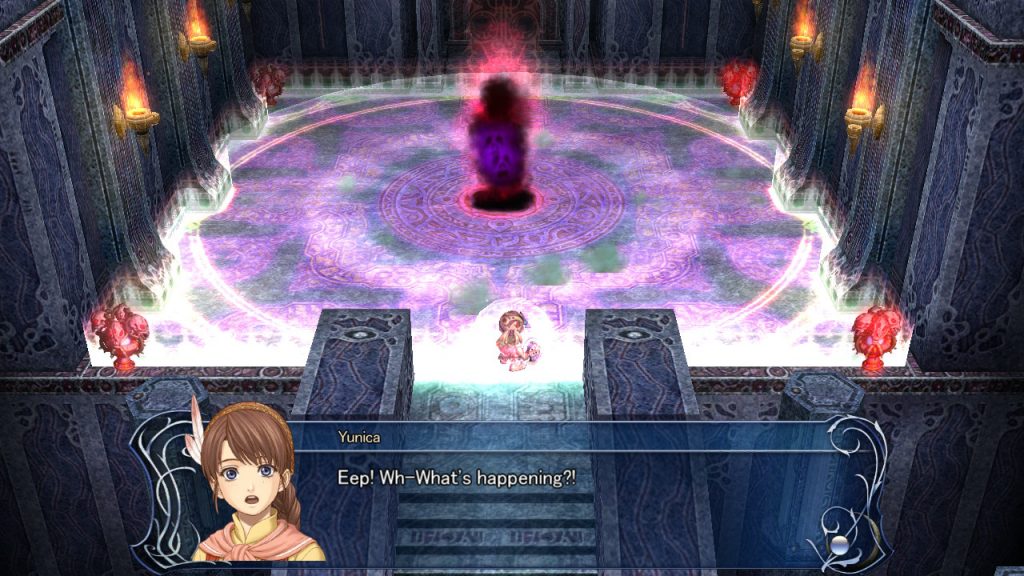
The story of Ys Origin begins when the twin goddesses steal themselves away into the night. Believing them to have returned to the surface, a search party of elite knights and sorcerers are sent down to find the goddesses and the answers to their questions.
You play as one of two optional characters (with a third protagonist and playthrough being unlocked upon completion with the initial two). Yunica Tovah is an apprentice knight whose father was recently cut down in combat. She’s your perfect anime protagonist: brash, fiery, and optimistic. Hugo Fact, on the other hand, is more cocky, reserved, and experienced.
You can start the game with either character and follow similar routes through the game, with cutscenes and story beats playing out differently, and with each character showing up as an NPC in the other’s story. Though the locations are the same, the gameplay and story are rather different.
As for the setting, Ys Origin takes place entirely in the demon tower which reaches high into the heavens. You make your way up from the surface, battling enemies, leveling up, and uncovering secrets as you go. The tower works as one enormous dungeon, and yet the story twists and turns in exciting and engaging ways despite its limited and claustrophobic setting.
At first, I was disappointed by the single dungeon setting, until I remembered how good Devil May Cry 3 was, and I was also proven wrong by this perfectly balanced, engrossing narrative.
Gameplay
Ys Origin is an action RPG. Its focus is on fast and frantic movement as you cut down enemies, collect loot, level up, unlock new skills, and grind with the goal of simply repeating this endlessly satisfying gameplay loop. Not unlike Diablo, this dungeon-crawler action RPG is all about the grind. You tear through enemies with relative ease, leveling up often and gaining enough of a stat boost each time to feel the difference.
You move through the tower at a steady click, with rooms being a manageable size. Whenever you leave and re-enter a room, the enemies respawn, making combat endless and grinding easy. When you come to a boss that proves a little too hard, go back and spend 10-20 minutes grinding for a few new levels, and you’ll pull them apart easily enough.
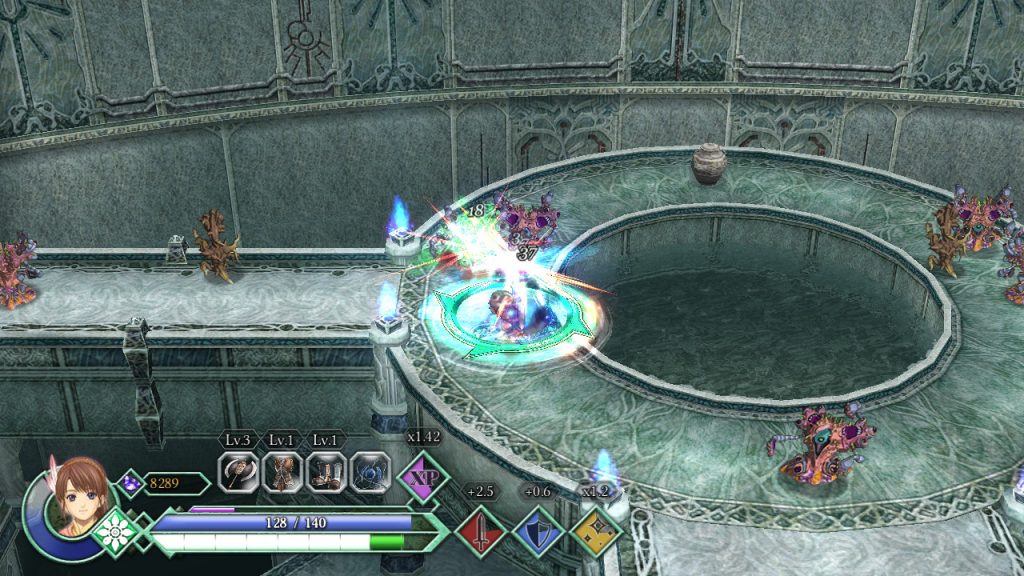
This is not a particularly difficult game, nor is it a painfully strategic one. It’s a game about cutting down enemies with great satisfaction, with enough variety in enemy types, skills, and level layout to keep things just interesting enough for you to keep pushing on deeper and higher into the strange demon-infested tower.
As for how the game actually plays, Yunica is a close-range combatant who wields an axe. She’s quick to swing in and cut through hordes of demons. Hugo, on the other hand, is a magic-based character who uses mid-to-long-range magical projectiles to empty the dungeon of demons. They play pretty differently, with Yunica’s route almost feeling like the original God of War series and Hugo playing like the starfighter from Galaga.
Yunica’s combat is far more enjoyable and less repetitive than Hugo’s, and so it was her story that I stuck with. Hugo’s gameplay loop becomes monotonous quickly, and there’s a lot more tiresome hammering of the Y button as you shoot. The game really could have done with a button that fixes Hugo in one direction. Instead, whenever you have to retreat a little and keep your distance from an approaching short-range combatant, you have to turn, run, make some space, and return to your barrage of projectiles.
If you only plan on playing through the game once, I definitely recommend playing as Yunica. Not only is she a more likable protagonist, but her gameplay is all but flawlessly executed. You hammer on the Y button to rip and tear through demons, while attaching special skills to the A button. A meter on your HUD shows the cost of your special skills, but it recharges constantly and quickly, allowing you to almost-but-not-quite spam your special skills. The game forces you to be just tactical enough that you can’t rely entirely on special skills but they also recharge within seconds.
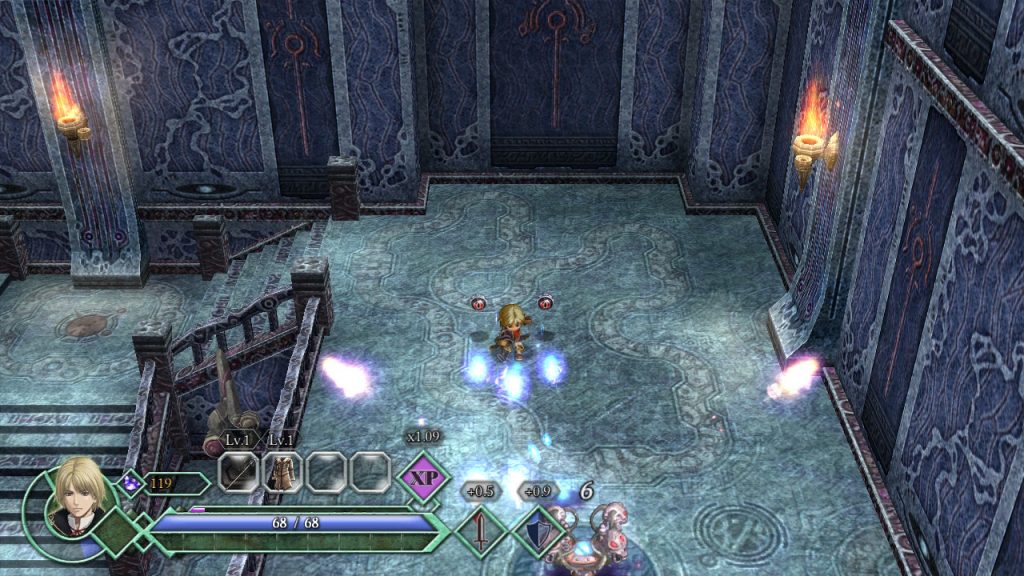
Yunica’s special skills are also varied enough, and you can strengthen each of them with gems found in chests as you explore. These special skills are flashy and pretty, and they feel different enough from one another to make the gameplay varied and consistently engaging.
There’s also some light platforming. The character can jump with B and simple platforming happens often. It’s not complex but it adds a bit of verticality and variety to level layouts. It’s appreciated but not revolutionary.
Given that Yunica is so much more fun to play as than Hugo, it’s tough to score the combat fairly. Hugo’s is functional but awkward and bland, while Yunica’s is frantic, engaging, strategic, and perfect for the design and genre of Ys Origin.
Visuals
Nihon Falcom’s games are kind of like B-movies. They’re made on a smaller budget and they focus on complex writing, world-building, characterization, and solid gameplay over the most powerful graphics. That said, both The Legend of Heroes and Ys manage to offer distinct anime-inspired art direction that makes their games instantly recognizable, and the same is true here.
Ys Origin places small and cute character sprites in a 3D environment. The end result falls somewhere between Disgaea and Octopath Traveler. The character sprites look 2D at first but, upon close inspection, have an almost claymation 3D model look about them, kind of like the characters in Mario Kart 64. The aesthetic is cute and effective.
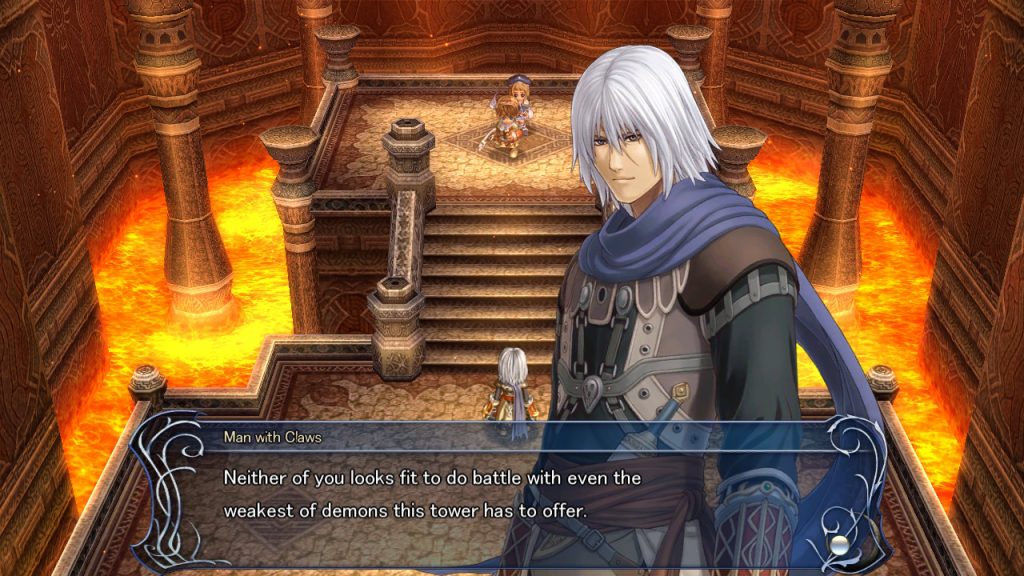
The world of the tower itself is blocky and simple. As you move up, every 30-60 mins will offer you a new environment, from a flooded floor to one that closely resembles hell. Enemy types change and get stronger along with this shift in environment.
The camera remains fixed and semi-distant, giving you a clear view of the action. It isn’t top-down nor isometric, but it also isn’t as dynamic as 90s/00s Capcom games either.
Character design is simply but detailed enough to make each one feel unique, and the same can be said for enemy designs. You can instantly recognise an enemy type by how they look, predict how they will attack and defend, and plan your approach accordingly. It works perfectly in service of the gameplay.
Audio
One thing I did know about the Ys series long before playing it myself is that is has a stellar soundtrack, and that is not less true for Ys Origin. In true fantasy tradition, Ys Origin uses a classical score that blends soft strings and woodwind to create a magical and fairy-like quality when the atmosphere calls for it. Bombastic orchestration hits just right during intense story beats, boss encounters, and particularly hellish demon-infested rooms.
The only misfire with regards to the soundtrack is the odd selection of tracks which mix up rock/metal tones with classical orchestration. The most egregious example is, unfortunately, the opener. The game begins with an anime-esque OP that blends rock guitars and drums with sweeping orchestral strings and it does not work. Fans of Fleshgod Apocalypse will be left cringing hard.
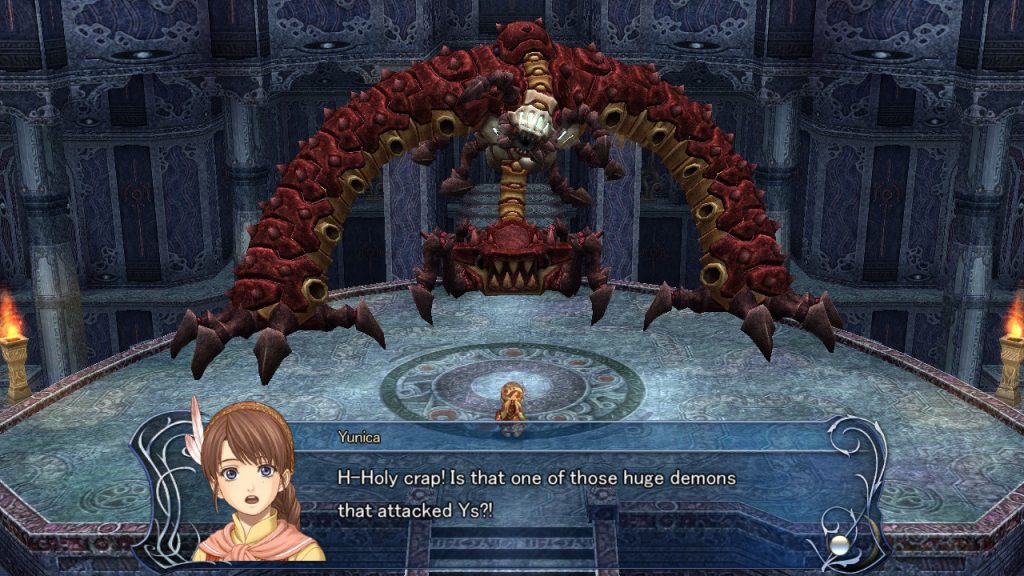
That one awkward misfire aside, the in-game soundtrack is stellar. Several melodies – both softer and heavier ones – will get lodged in your head for a few days, and there’s enough range to keep it fresh and even hypnotic at times. The tracks that are more rock-based all work to elevate the pace and tone of the game, while the orchestral score is epic in scope. It’s just the tracks that blend the two forms which fall flat and awkward.
As for the sound effects, they’re fine. The game uses simple chimes and notes to indicate levelling up, finding loot, opening chests etc. At times, these chimes feel very reminiscent of The Legend of Zelda and they all work well enough to accompany achievements and discoveries. They’re nothing special but they certainly never needed to be.
Value
At 10-12 hours with three stories, three protagonists, and therefore three reasons to play through the campaign, you’re getting a very good amount of bang for your buck here. But the game is also so intensely engrossing in terms of its tight and satisfying gameplay loop of hacking, looting, and leveling that you’ll see the sun rise, fall, and rise again outside your window as you play.
Ys Origin is an intensely satisfying affair, with enough variety in its combat to keep it entertaining and engrossing the whole way through. The game also offers no awkward bugs or glitches that might ruin the experience. What you’re getting here is a tightly-crafted, balanced, fair, and fiercely engaging action RPG.
Despite its age and its low budget, Ys Origin is so well-balanced between its dynamic soundtrack, charming visual design, engrossing story and lore, mysterious setting, likable characters, plot twists and turns, and endlessly entertaining gameplay loop. It’s a strong, solid game with no obviously exposed weak points to be seen.

I finally understand why dedicated Ys fans have adored this series for so many years. The lore and world-building is clever, deep, and alluring. Its characters are varied and richly realized. Its story twists and turns and keeps you guessing from beginning to end. Then there’s the stellar, impressively vast soundtrack.
Ultimately, however, it’s the gameplay loop that really does it. Hacking through droves of uniquely designed demons and cutting down varied, exciting, large-than-life bosses is never less than satisfying. Leveling up, gaining new skills, exploring their usage, and watching the fireworks just keeps getting more fun as the game progresses. At 10-ish hours, it doesn’t outstay its welcome and keeps you glued to the screen until the credits roll.
Ys Origin really is a fantastic action RPG experience from start to finish. Its characters, soundtrack, enemy and world design, and frantic gameplay loop are all pitch perfect. What a stellar game. Fans of action RPGs and JRPGs have another fantastic Switch port to enjoy.
Ys Origin Review provided by NintendoLink
Review also available on OpenCritic
Publisher: Dotemu
Developer: Dotemu
Release Date: October 1, 2020
Price: $19.99, £17.99, €19.99
Game Size: 2.4 GB
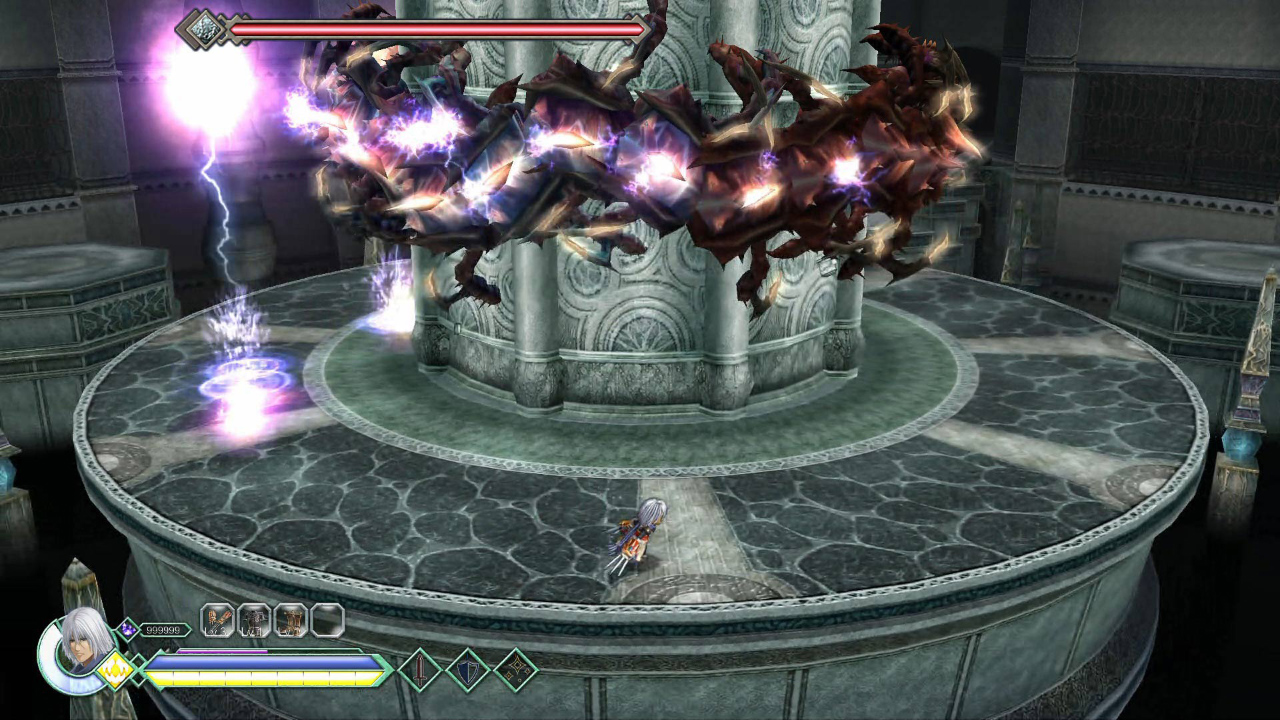
Balanced and engrossing world-building and character writing
A frantic and addictive gameplay loop
Satisfying combat mixed with a gorgeous soundtrack
One playable character is far more fun and fluid than the other
The soundtrack has a few awkward misfires
What's Your Reaction?
Will Heath is a freelance writer and digital nomad from the UK who mostly splits his time between London and Tokyo. He runs the website Books & Bao – a site dedicated to international literature and world travel – and writes about video games for Nintendo Link and Tokyo Weekender.






